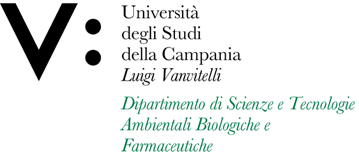Paolo COTRUFO
Insegnamento di Psicopatologia dell’alimentazione
Corso di laurea magistrale in SCIENZE DEGLI ALIMENTI E DELLA NUTRIZIONE UMANA
SSD: M-PSI/08
CFU: 2,00
ORE PER UNITÀ DIDATTICA: 20,00
Periodo di Erogazione: Annualità Singola
Italiano
| Lingua di insegnamento | ITALIANO |
| Contenuti | Il corso si propone di fornire agli studenti basi teoriche e competenze pratiche per la comprensione della complessità dei disturbi alimentari (anoressia, bulimia, obesità). Si darà attenzione al riconoscimento degli aspetti più profondi del paziente e agli strumenti a disposizione del nutrizionista per affrontare patologie non curabili solo con l'intervento nutrizionale. Inoltre saranno fornite le conoscenze di base sulle peculiarità dello psichismo umano e le differenze tra istinto e pulsione, bisogno e desiderio, fame e appetito. |
| Testi di riferimento | P. Cotrufo, Zoe: “Mia madre odia le carote” Mimesis Ed. (2016). |
| Obiettivi formativi | Al termine del corso lo studente deve avere le conoscenze e le abilità per: |
| Prerequisiti | Nessuno |
| Metodologie didattiche | 16 ore (2cfu) di lezioni frontali (ciascuna lezione di 2 ore; 8 lezioni) con la possibilità di attività individuali o a gruppi durante la lezione. Ogni modifica di orario, giorno e luogo verranno comunicate tempestivamente agli studenti. |
| Metodi di valutazione | Esame orale nel quale verranno valutate le conoscenze acquisite dallo studente sui diversi temi del corso e le sue capacità di collegare criticamente i diversi ambiti e di sintetizzarne gli aspetti rilevanti, e le sue capacità di esposizione e di proprietà di linguaggio. |
| Programma del corso | Il corso si propone di fornire agli studenti basi teoriche e competenze pratiche per la comprensione della complessità dei disturbi alimentari (anoressia, bulimia, obesità). Si darà attenzione al riconoscimento degli aspetti più profondi del paziente e agli strumenti a disposizione del nutrizionista per affrontare patologie non curabili solo con l'intervento nutrizionale. Inoltre saranno fornite le conoscenze di base sulle peculiarità dello psichismo umano e le differenze tra istinto e pulsione, bisogno e desiderio, fame e appetito. |
English
| Teaching language | Italian |
| Contents | The course aims to provide students with theoretical foundations and practical skills for understanding the complexity of eating disorders (anorexia, bulimia, obesity). Attention will be paid to the recognition of the deepest aspects of the patient and to the tools available to the nutritionist to deal with pathologies that cannot be cured only with nutritional intervention. Furthermore, basic knowledge will be provided on the peculiarities of the human psychism and the differences between instinct and drive, need and desire, hunger and appetite. |
| Textbook and course materials | P. Cotrufo, Zoe: “Mia madre odia le carote” Mimesis Ed. (2016). |
| Course objectives | At the end of the course the student must have the knowledge and skills to: |
| Prerequisites | None |
| Teaching methods | 16 hours (2 credits) of frontal lessons (each 2 hour lesson; 8 lessons) with the possibility of individual or group activities during the lesson. Any changes in time, day and place will be promptly communicated to students. |
| Evaluation methods | Oral exam in which the knowledge acquired by the student on the different topics of the course and his ability to critically connect the different areas and to summarize the relevant aspects, and his ability to show and language properties will be assessed. |
| Course Syllabus | The course aims to provide students with theoretical foundations and practical skills for understanding the complexity of eating disorders (anorexia, bulimia, obesity). Attention will be paid to the recognition of the deepest aspects of the patient and to the tools available to the nutritionist to deal with pathologies that cannot be cured only with nutritional intervention. Furthermore, basic knowledge will be provided on the peculiarities of the human psychism and the differences between instinct and drive, need and desire, hunger and appetite. |








